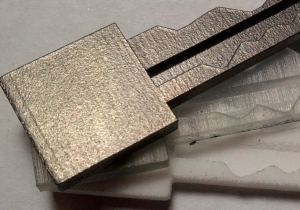Two students from MIT have released a piece of code that would allow anyone to 3D-print a model of any Primus key, considered around the world as one of the most high-security lock systems, that it is even manufactured with the stern three-word warning “Do Not Duplicate.”

Those words have been taken by David Lawrence and Eric Van Albert as a direct challenge to their hacking skills.
According to Forbes, “Schlage’s Primus models are advertised for use in high-security applications: The company’s marketing materials include references to the locks’ use in government facilities, healthcare settings, and detention centers.”
Looks like Schlage’s attempts to prevent duplication has been overridden. At the Def Con Hackers conference last Saturday Lawrence and Van Albert bypassed this security just by using a flatbed scanner and their newly developed software tool. Using these, the MIT students were able to produce precise models of the Primus keys, which they uploaded to 3D-printing services Shapeways and i.Materialise. Nylon and titanium copies of the keys were produced by the respective 3D printers and mailed to Lawrence and Van Albert.
“In the past if you wanted a Primus key, you had to go through Schlage. Now you just need the information contained in the key, and somewhere to 3D-print it,” says Van Albert in the Forbes feature.
Lawrence adds “You can take a high security ‘non-duplicatable’ key and basically take it to a virtual hardware store to get it copied.”
Although users cannot just open any random door with a 3D printed key, it does emphasize the ease at which high-security keys can be replicated. By studying Schlage’s manuals and patents the two were able to decipher the distinct codes in the keys and continued on to program them in the modeling software.
Lawrence likened “pirating keys” to pirating movies.
“Someone still has to get the information in the first place, but then everyone can get a copy,” he said.
According to Forbes, 3D printing through online services is relatively cheap. The Shapeways-printed nylon keys cost less than $5 each, while the titanium copy from i.Materialise.com costs $150.














